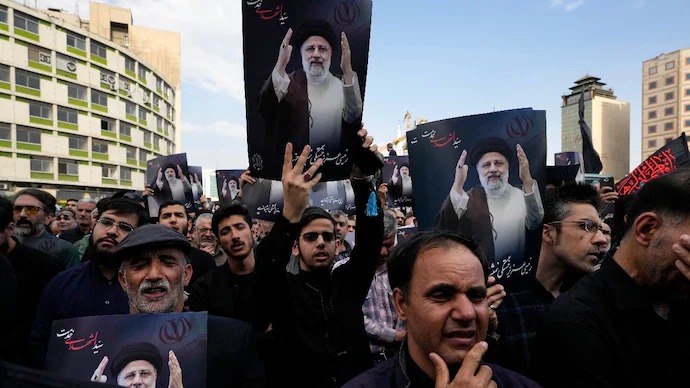The helicopter carrying Iranian President Ebrahim Raisi, along with his Foreign Minister Hossein Amirabdollahian, and several other officials and crew members, crashed due to a “technical failure,” as reported by Iranian state media.
The ill-fated journey occurred as Raisi and Amirabdollahian were returning to Iran following their visit to the Azerbaijan border, where they had inaugurated a significant dam project. The helicopter crashed into the mountainous terrain in northwest Iran’s Jolfa region. Despite hours of intensive search efforts amid challenging weather conditions, rescue teams discovered the crash site, but tragically, there were no survivors.
The loss of these prominent figures comes at a precarious time, with tensions already gripping the Middle East. Following the incident, Iranian Vice President Mohammad Mokhber has been appointed as the acting President, with Iran’s Supreme Leader Ayatollah Ali Khamenei instructing him to oversee the election of a new President within 50 days, according to state media.
The aircraft involved in the crash, identified as a Bell 212, had a history dating back to its development for the Canadian military in the late 1960s. Described as a two-blade twin-engine medium helicopter with a capacity of up to 15 seats, it first took flight in 1968. Although initially designed in the US, both US and Israeli authorities have asserted that they were not involved in the tragic incident.
The sudden demise of President Raisi, who was regarded as a close ally of Supreme Leader Khamenei and a potential successor, has raised questions about the future leadership of Iran. While speculation surrounds Khamenei’s 55-year-old son, Mojtaba, as a potential successor, concerns have been voiced regarding familial succession, particularly following the overthrow of Iran’s hereditary monarchy.
In response to the tragedy, Iran has declared five days of mourning, commencing from Tuesday through Thursday. However, the public display of grief appeared subdued initially, with normalcy prevailing in many areas. Nevertheless, as the news spread, hundreds gathered in Tehran to mourn, displaying posters of Raisi and waving Palestinian flags.
International condolences poured in, with the United States expressing sorrow over the loss of President Raisi, Foreign Minister Amirabdollahian, and others. While acknowledging the need for a transition to a new leadership in Iran, the US also highlighted concerns over human rights abuses during Raisi’s tenure. US State Department spokesperson Mathew Miller emphasized the importance of fundamental freedoms, particularly for women and girls in Iran, while expressing regret over the tragic incident.

















Comments